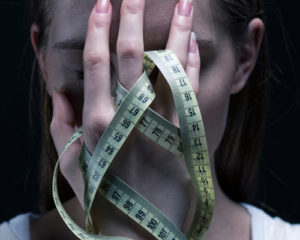Regularly drinking alcohol leads to weight gain. Alcohol abuse can also contribute to malnutrition.
Alcohol’s Effects on Weight
Alcohol seems to be everywhere: barbecues, happy hours, special occasions, and food establishments of all kinds. There is often a lot of pressure to drink even when one has no intention of doing so.
Coupled with bar foods that are often high in calories, it is no wonder that drinking is associated with weight gain. Drinking is so ubiquitous that there are now methods for people to give it up even if they do not misuse or binge on alcohol.
Eat This, Not That published an article touting the benefits of giving up alcohol for one month. This is starting to become known as “dry January.” Weight loss was listed as one of the many benefits of dry January.
Caloric Values of Various Popular Alcohols
Not all alcohol is created equal. Disabled World outlined the caloric value of many popular drinks.
Alcohol Type and Caloric Values
- Beer (half liter/1 pint): 184 calories
- Champagne (100 mL): 126
- Gin (100 mL): 220
- Rosé (100 mL): 64
- Red wine (100 mL): 70
- Martini (100 mL): 175
- Dry white wine (100 mL): 65
- Medium white wine (100 mL): 70
- Sparkling white wine (100 mL): 90
- Sweet white wine (100 mL): 74
- Whiskey (100 mL): 220
Alcohol can stoke appetite. A study published by Current Obesity Reports in January 2015 explains that alcohol contains about 7 kcal per gram.
- Moderate drinking may not lead to weight gain in the short term, but this may be because people who drink less may have a healthier lifestyle overall.
- Excessive drinking is more closely associated with weight gain.
- Studies conducted on people who binge drink show that people who drink the most are 70 percent more likely to gain weight than those who drank the least.
People who drink aperitifs — beverages meant to increase appetite — eat more than people who start out their meals with drinks containing carbohydrates.
Mixed drinks, such as cocktails or shots of liquor frequently diluted with sugary juices or soda, have more calories than alcohols that are not mixed with other ingredients.
People who want to lose weight without quitting alcohol completely may want to moderate their drinking and stick to beer or wine.
Unhealthy Food Decisions
Alcohol is made of liquid calories, which do not fill people up the way food does. Alcohol is also known to induce cravings and cause people to eat unhealthy foods.
Anything that is eaten in addition to alcohol simply adds to the number of calories consumed. MedlinePlus adds that people are likely to make unhealthy choices under alcohol’s influence.
Teenagers are also more likely to become overweight or obese as a result of their drinking habits, according to Current Obesity Reports.
The report further describes a few additional reasons why alcohol may lead to weight gain.
- Alcohol appears to get in the way of how the body gets rid of fat.
- Lack of sleep may cause adults to drink more alcohol and to drink more overall than adults who get adequate sleep.
- Some people may gain weight more easily because of their genes.
On June 2015, the journal Appetite published a study explaining the “drunchies” — cravings for food brought on after drinking. The study looked at 24 men and determined that drinking moderate alcohol led them to crave savory food that was high in fat and calories.
MedlinePlus also adds that eating before drinking may prevent people from making unhealthy food choices while under the influence. This is because it could slow alcohol’s influence on a person as they drink.
Other tips include drinking slowly to avoid drinking more alcohol than planned and drinking water or soda water between drinks to avoid excess alcohol that could cause a person to make unhealthy decisions.
Other Ways Alcohol Contributes to Weight Gain
Alcohol could cause people to gain weight because it may encourage sluggishness in the days after drinking. Going to happy hour often means missing out on workout plans.
Drinking and the unhealthy food choices made under alcohol’s influence may also cause someone to feel lethargic the next day. Other factors include:
Sleep disruption. A 2015 study shows that alcohol intake may have an effect on a person’s sleep quality. Psychology Today mentions that lack of sleep may play a role in obesity by making people too tired to exercise or make healthy nutritional choices.
Ethanol as energy. Eat This, Not That states that drinking causes the body to use ethanol as an energy source instead of stored fat. This is a major disruption to metabolism.
How Alcohol Sometimes Causes Weight Loss
Despite its reputation for negatively affecting the waistline, some people resort to unhealthy habits to continue losing weight without changing their drinking habits.
The ketogenic (keto) diet: Most people who take part in this diet trend want to lose weight, and they do not have the intention to get drunk faster because of these efforts. Men’s Health mentions that the theory behind the popular keto diet is to eat high amounts of protein and heavily restrict carbs to force the body to start burning stored fat.
People on the keto diet end up burning glycogen, which usually comes from carbs. Less glycogen in the body means that alcohol arrives at the liver faster, amplifying its effects.
Day drinking. Scientific data on people who drink all day is not widely available. The majority of articles on day drinking and its possible impact on weight or health are non-scientific. Guides such as those in Gizmodo discuss tips for people who drink during the day who want to avoid some of alcohol’s usual discomforts, such as passing out. A few ideas are:
- Stay hydrated.
- Eat nutritious meals.
- Drink slowly.
Drinking during the day is linked to poor nutritional choices that may cause aperson to eat less than they should. This can cause a person to lose nutrients like vitamin B as alcohol dehydrates them.
Alcohol and Eating Disorders

Eating disorders may allow a person to continue drinking while still losing weight. Bam Margera of MTV fame talked about his struggle with bulimia and alcohol with VICE. Margera stated that at one point he mostly drank alcohol throughout the day, and his struggles eventually impacted his career.
Margera described drinking alcohol throughout the day and then eating whatever was in his home at night. A June 2016 article from Broadly describes some behaviors college students take part in so they can avoid gaining weight and still be able to drink.
Described as “drunkorexia,” some college students start eating less so they can save money, get drunk faster, or compensate for a night of drinking without sacrificing their waistline. Some methods described on Broadly include:
- Eating very few calories during the day
- Consuming low-calorie alcoholic drinks
- Not eating the day after drinking
- Exercising in excess the next day
Drunkorexia may help someone make up for a night of drinking, but it could lead to additional problems, such as increased problems caused by alcohol or drinking more than intended.
Spotting a Problem
Alcohol can impact weight in a variety of ways. While light to moderate drinking can have little effect on weight, heavy drinking and binge drinking can bring a variety of negative impacts, such as weight gain, malnutrition, and even obesity.
(April 2018) Weight loss and alcohol. MedlinePlus. from https://medlineplus.gov/ency/patientinstructions/000889.htm
(October 2018) Alcohol and Weight Loss. Verywell Fit. from https://www.verywellfit.com/should-i-quit-drinking-to-lose-weight-3495749
(January 2019) What Happens to Your Body When You Give Up Alcohol. Eat This, Not That. from https://www.eatthis.com/what-happens-to-your-body-stop-drinking-alcohol/
(January 2015) Alcohol Consumption and Obesity: An Update. Current Obesity Reports. from https://www.ncbi.nlm.nih.gov/pmc/articles/PMC4338356/
(January 2017) Number of Calories in Alcoholic Drinks Chart. Disabled World. from https://www.disabled-world.com/calculators-charts/alcohol-calories-chart.php
(December 2017) Bam Margera On How He Overcame Bulimia and Alcoholism. VICE. from https://munchies.vice.com/en_us/article/43a79g/bam-margera-on-how-he-overcame-bulimia-and-alcoholism
(January 2018) Eating disorders. NHS. from https://www.nhs.uk/conditions/eating-disorders/
(December 2016) Is There a Link Between Poor Sleep and Obesity? Psychology Today. from https://www.psychologytoday.com/us/blog/media-spotlight/201612/is-there-link-between-poor-sleep-and-obesity
(June 2015) Moderate alcohol consumption stimulates food intake and food reward of savoury foods. Appetite. from https://www.ncbi.nlm.nih.gov/pubmed/25636235
(January 2015) The Acute Effects of Alcohol on Sleep Electroencephalogram Power Spectra in Late Adolescence. Wiley Online Library. from https://onlinelibrary.wiley.com/doi/abs/10.1111/acer.12621
(April 2018) Drinking Alcohol On A Ketogenic Diet? You’ll Get Drunk Faster. Men’s Health. from https://www.menshealth.com.sg/weight-loss-nutrition/drinking-alcohol-ketogenic-diet-drunk-faster/
(June 2016) Drunkorexia: When You Eat Less So You Can Drink More. Broadly. from https://broadly.vice.com/en_us/article/59mmbb/drunkorexia-when-you-eat-less-so-you-can-drink-more
(July 2015) How to Drink All Day and Not Pass Out. Gizmodo. from https://gizmodo.com/how-to-drink-all-day-and-not-pass-out-5922461


